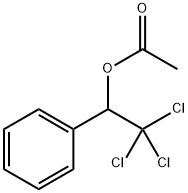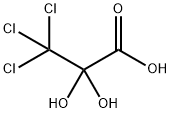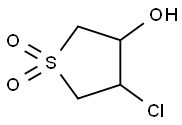1-Chloro-2-propanol
Synonym(s):Chloropropanol;Propylene chlorohydrin
- CAS NO.:127-00-4
- Empirical Formula: C3H7ClO
- Molecular Weight: 94.54
- MDL number: MFCD00004530
- EINECS: 204-819-6
- SAFETY DATA SHEET (SDS)
- Update Date: 2025-06-13 14:48:16

What is 1-Chloro-2-propanol?
Chemical properties
colourless to light yellow liquid
The Uses of 1-Chloro-2-propanol
1-Chloro-2-propanol has been used as:
- chemical intermediate for the manufacture of propylene oxide, a starting material for production of polyurethane polyols and propylene glycol
- as α,β-halohydrin standard during the enzymatic synthesis of α,β-halohydrins from gaseous alkenes
What are the applications of Application
1-Chloro-2-propanol is a chlorinated propanol used in chemical synthesis
Definition
ChEBI: 1-chloropropan-2-ol is a secondary alcohol that is isopropanol in which one of the methyl hydrogen atoms is substituted by chlorine. It is an organochlorine compound and a secondary alcohol. It derives from a hydride of a propane.
General Description
Clear colorless to light amber liquid with a mild non residual odor.
Air & Water Reactions
Soluble in water.
Reactivity Profile
May be sensitive to prolonged exposure to light. Incompatible with strong oxidizing agents.
Fire Hazard
1-Chloro-2-propanol is combustible.
Properties of 1-Chloro-2-propanol
| Boiling point: | 126-127 °C(lit.) |
| Density | 1.111 g/mL at 25 °C(lit.) |
| refractive index | n |
| Flash point: | 125 °F |
| storage temp. | Flammables area |
| Water Solubility | Soluble in water |
| solubility | Chloroform (Soluble), Methanol (Slightly) |
| form | clear liquid |
| pka | 14.09±0.20(Predicted) |
| color | Colorless to Light yellow |
| Merck | 14,7851 |
| BRN | 773653 |
| Exposure limits | ACGIH: TWA 1 ppm (Skin) |
| Stability: | Stable. Flammable. Incompatible with strong oxidizing agents. |
| CAS DataBase Reference | 127-00-4(CAS DataBase Reference) |
| EPA Substance Registry System | 1-Chloro-2-propanol (127-00-4) |
Safety information for 1-Chloro-2-propanol
| Signal word | Danger |
| Pictogram(s) |
 Flame Flammables GHS02  Skull and Crossbones Acute Toxicity GHS06 |
| GHS Hazard Statements |
H226:Flammable liquids H315:Skin corrosion/irritation H319:Serious eye damage/eye irritation H335:Specific target organ toxicity, single exposure;Respiratory tract irritation |
| Precautionary Statement Codes |
P210:Keep away from heat/sparks/open flames/hot surfaces. — No smoking. P302+P352:IF ON SKIN: wash with plenty of soap and water. P305+P351+P338:IF IN EYES: Rinse cautiously with water for several minutes. Remove contact lenses, if present and easy to do. Continuerinsing. |
Computed Descriptors for 1-Chloro-2-propanol
New Products
4,4-Difluoropiperidine hydrochloride tert-butyl 9-methoxy-3-azaspiro[5.5]undecane-3-carboxylate Indole Methyl Resin N-Isopropylurea N,N-Dicyclohexylcarbodiimide(DCC) MELDRUMS ACID 5-METHYLISOXAZOLE-4-CARBOXYLIC ACID Magnessium Bis glycinate Zinc ascorbate 1-bromo-2-butyne 2-acetamidophenol 9(10H)-anthracenone Erythrosin B, 4-Piperidinopiperidine 2-((4-morpholinophenylamino) (methylthio) methylene) malononitrile 2,4-dihydroxybenzaldehyde 3-(4-morpholinophenylamino)-5-amino-1H-pyrazole-4-carbonitrile Methyl 2-methylquinoline-6-carboxylate 2,6-dichloro-4-nitropyridine 4-Bromo-2-chlorobenzonitrile 2-(benzylamino)acetic acid hydrochloride 4-(tert-Butoxycarbonylamino)but- 2-ynoic acid 3,4-dihydro-2H-benzo[b][1,4]dioxepine 1-Phenyl-1-cycloprppanecarboxylicacidRelated products of tetrahydrofuran








You may like
-
 1-Chloro-2-propanol (contains ca. 25% 2-Chloro-1-propanol) CAS 127-00-4View Details
1-Chloro-2-propanol (contains ca. 25% 2-Chloro-1-propanol) CAS 127-00-4View Details
127-00-4 -
 1-Chloro-2-propanol CAS 127-00-4View Details
1-Chloro-2-propanol CAS 127-00-4View Details
127-00-4 -
 3-(4-amino-1-oxoisoindolin-2-yl)-1-methylpiperidine-2,6-dione 98%View Details
3-(4-amino-1-oxoisoindolin-2-yl)-1-methylpiperidine-2,6-dione 98%View Details -
 614-19-7 98%View Details
614-19-7 98%View Details
614-19-7 -
 20677-73-0 (2,2-diethoxyethyl)methylamine 98%View Details
20677-73-0 (2,2-diethoxyethyl)methylamine 98%View Details
20677-73-0 -
 3-(4-(hydroxyamino)-1-oxoisoindolin-2-yl)piperidine-2,6-dione 98%View Details
3-(4-(hydroxyamino)-1-oxoisoindolin-2-yl)piperidine-2,6-dione 98%View Details -
 57381-49-4 2-bromo-4-chlorobenzonitrile 98%View Details
57381-49-4 2-bromo-4-chlorobenzonitrile 98%View Details
57381-49-4 -
 4,6-dichloropyrimidine-5-carbaldehyde 98%View Details
4,6-dichloropyrimidine-5-carbaldehyde 98%View Details
5305-40-8
Statement: All products displayed on this website are only used for non medical purposes such as industrial applications or scientific research, and cannot be used for clinical diagnosis or treatment of humans or animals. They are not medicinal or edible.
